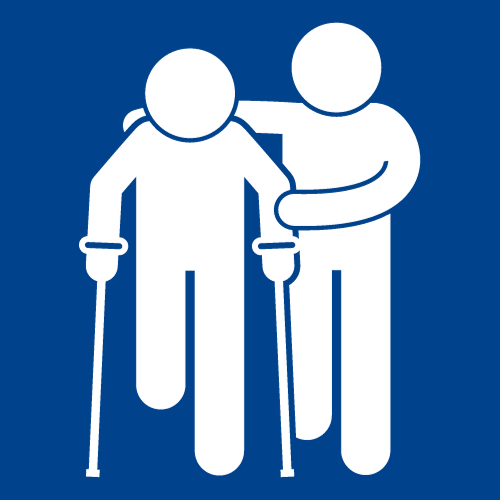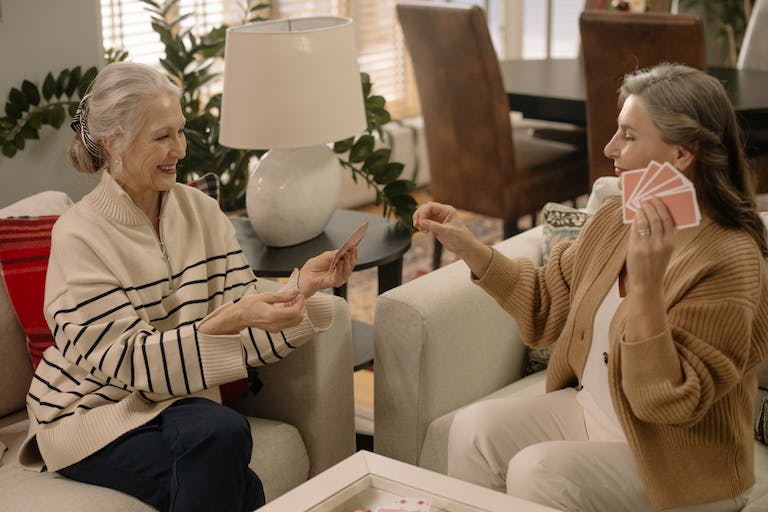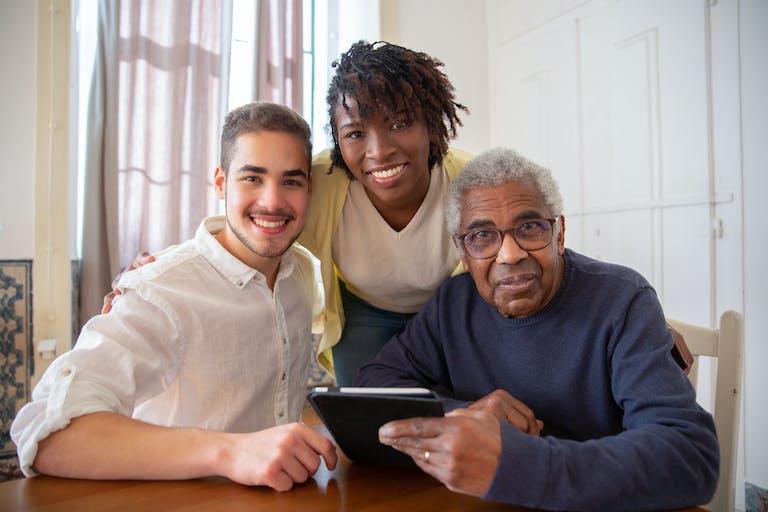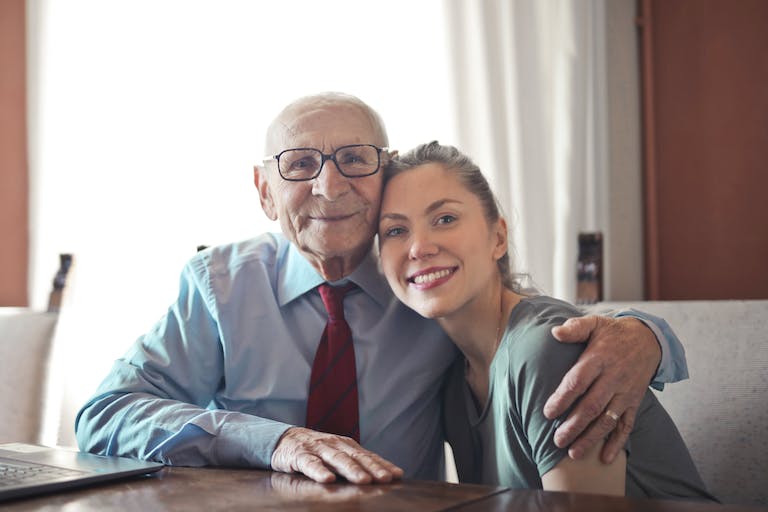As a caregiver for an elderly, chronically ill, or disabled loved one, you have an important and demanding job. Creating and following a daily checklist can help ensure you accomplish the essential daily tasks your loved one requires while also taking care of yourself. This comprehensive guide covers the key areas a caregiver should focus on each day.
Feel free to download or print the caregiver pdf checklist attached at the end of this guide.
Morning Care
The morning is an important time to help your loved one start their day comfortably and on a positive note.
Hygiene
Helping your loved one with their morning hygiene routines maintains their health and dignity. Be sure to allow enough time and work at their pace. Necessary activities may include:
- Brushing teeth
- Washing face
- Combing hair
- Shaving (for men)
- Providing a towel bath
- Helping to dress and change adult briefs/pads if needed
Offering assistance while allowing them to complete what they can builds confidence and self-reliance. Provide cueing as needed if they are forgetful or confused.
Mobility
After a long rest, stiff joints and muscles may make mobility more difficult.
- Help the care recipient out of bed slowly and provide ample time for them to gain their balance
- Provide ambulation assistance as needed using any prescribed devices (cane, walker, etc.)
- Move slowly and communicate each step to reduce the risk of falling.
- Make the bed and straighten the room once they are up
Breakfast
A nutritious breakfast fuels the body and mind for the challenges of the day.
- Offer two breakfast choices to provide autonomy
- Prepare chopped, soft, or liquid food as needed for swallowing disorders
- Assist with feeding if paralysis, limb contractures, or tremors inhibit independence
- Encourage adequate fluid intake if you are at risk for dehydration
- Give scheduled medications and insulin prior to eating
- Plan for excess time for a person with dementia or Parkinson’s disease
Emotional Support
Mornings set the mood for the day. Offer an empathetic listening ear regarding any anxieties or concerns expressed. Provide kind reassurance and a bit of humor when suitable. Share the schedule for the day to provide structure.
Beginning each morning by making your loved one feel safe, comfortable and valued goes a long way toward avoiding distressing behaviors related to fear or confusion later in the day.
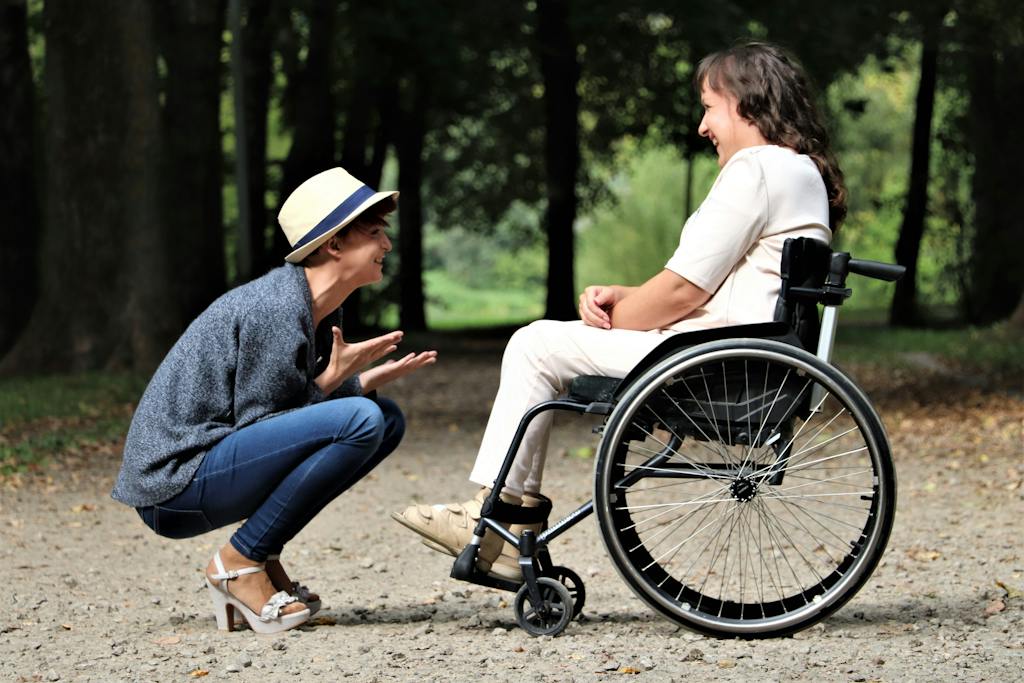
Mid-Day Care and Assistance
The middle of the day brings opportunities for social engagement, mental stimulation, and physical activity. But don’t overschedule a frail senior. Frequent rest periods are vital.
Activities of Daily Living (ADLs)
Attending to basic self-care needs promotes wellbeing.
- Schedule toilet visits to avoid accidents
- Offer standby assistance for safety with dressing, bathing, grooming, and toileting
- Utilize adaptive equipment like grab bars, shower chairs, long-handled grooming tools, etc. as prescribed
- Change briefs or pads as needed, following hygienic protocols
IADLs and Appointments
Instrumental activities of daily living include tasks like household chores, shopping, transportation, and healthcare visits.
- Accompany the care recipient to appointments and errands
- Provide transportation using safety measures like seat belt covers that prevent slipping
- Utilize grocery and pharmacy delivery services to limit outings
- Complete light housework in their presence so they feel engaged
Nutrition
Plan nutritious meals and snacks that appeal to personal preferences within dietary restrictions. Feed those unable to dine independently. Stay vigilant for signs of choking or aspiration during meals. Offer hydration frequently, especially if medical conditions or medications predispose to dehydration.
Connecting with Others
Humans need social bonds. Encourage cherished relationships through visits, calls, videos chats, looking at cards or photos, reading letters, safe outdoor meet-ups, etc. Some may benefit from pet therapy. Arrange telehealth with spiritual supports like clergy upon request.
Adult day programs offer stimulating group activities and socialization once they reopen safely post-COVID.
Mental Stimulation
Keep the mind challenged to maintain cognitive skills for longer. Adjust activities to match interests and attention spans.
Options include:
- Board games, crossword puzzles, and trivia
- Sorting coins or tactile activities like folding laundry
- Looking at old photos or scrapbooks
- Listening to favorite music or books on tape
- Watching classic movies or religious services on TV
Adjust activities up or down based on fatigue, pain levels, agitation, etc. to prevent frustration. Engage the senses to encourage reminiscence.
Physical Activity
Limited mobility raises risks for blood clots, skin breakdown, constipation, bone density loss and more. Build physical activity into each day as able. Exercise benefits the brain too.
Incorporate movement such as:
- Seated chair yoga stretches
- Light strength training with resistance bands
- Standing-frame equipment to bear weight, if prescribed
- Ambulating outdoors or indoor halls
- One-to-one physical therapy using proper body mechanics
Stop immediately if shortness of breath, pain, or dizziness occurs. Note symptoms to report to the physician. Offering even minimal assistance with self-care allows a frail older adult to expend what energy they have in other meaningful ways.
Evening Care Routine
The evening hours prepare a care recipient for a good night’s rest and attend to safety. Design calming routines to ease anxiety too.
Personal Care
After a long day, hygiene rituals renew comfort and refreshment.
- Provide standby assist or total help with oral care, washing up and changing into night clothes
- Apply lotion to dry skin areas prone to breakdown
- Trim toenails straight across to prevent in-grown ones
Elimination
Bladder or bowels can become more active at night for some people needing assistance toileting.
- Use night lights, anti-slip rugs and elevated toilet seats for safety
- Change absorbent garments as needed following protocols
Medications
Verify all prescribed meds are given properly at night as scheduled. Report any pain, new symptoms or side effects to the ordering provider.
Nutrition
A light snack before bedtime prevents hunger as long as swallowing difficulties are not present. Thicken liquids as prescribed. Keep water within reach. Avoid caffeine or large amounts of fluid that increase bathroom trips.
Safety
Make the environment risk-free for resting and sleeping:
- Lower bed rails if disoriented to surroundings upon awakening
- Use monitors or alarms as needed – chair exit, bed, door, motion, etc.
- Lock doors, store equipment like oxygen, disable stove, based on assessed judgment
- Place call light, telephone, TV remote, water, urinal and other necessities within reach
Emotional Wellbeing
Listen compassionately about any worries or fears interfering with sleep. Provide reassurances. Journaling one’s feelings can help process emotions too.
Calm the body with relaxing music, guided imagery, prayer, gentle touch, or whatever ritual is comforting. A brief neck or hand massage can relieve tension, as appropriate.
Additional Checklist Considerations
Caring for a loved one relies on organization, safety preparations, and effective communication. These additional tips strengthen a caregiver’s daily effectiveness.
Written Schedules
Post simple daily schedules including ADLs, IADLs, visiting professionals, and medications. Review them together to empower participation and comprehension. Adjust as needed to improve routines.
Medical Team Communication
Keep a dedicated notebook listing emergency contacts, medical providers, medications, equipment companies and other service agencies supporting care needs. Jot symptom changes, skin alterations and other concerns to relay accurately. Prepare questions before appointments.
Legal & Financial Paperwork
Manage financial matters, advanced directives and estate planning properly. Keep documents like wills, banking info, insurance policies, birth certificate and military discharge papers organized and handy for quick reference. Know where durable power of attorney paperwork resides.
Home Modifications
Adapt living spaces proactively for evolving physical or sensory limitations to sustain independence longer:
- Improve lighting
- Install bathroom grab bars
- Remove fall hazards like area rugs or clutter
- Place bed, chairs and work areas at ideal heights
- Display meaningful photos and memory boards
Emergency Planning
Prepare procedures for likely emergency scenarios like falls, extreme pain, wound openings, equipment failures or disasters. Post emergency contacts by each phone. Show others how to utilize home equipment like oxygen,Specialized mobility devices or tube feeds. Restock first aid kits seasonal.
Wellness Visits
Schedule annual checkups plus vision, hearing and dental exams to address needs impacting health or safety early on. Arrange transportation and accompaniment to appointments as necessary. Discuss preventing isolation and encouraging engagement.
Behavior & Mood Changes
Note any worrisome alterations in typical behaviors, personalities or moods. Report symptoms of depression, anxiety or paranoia developing. Vision or hearing loss can increase agitation or withdrawal wrongly perceived as psychological conditions instead.
Caregiving freely chosen out of love eases emotional struggles, even amid taxing days. Utilize this checklist to maintain beloved routines while continuously enhancing care. Take pride in your vital support, brightening someone’s resilient spirit despite illness or disability. You make a positive difference through purposeful planning, devoted assistance, and compassionate listening, day after precious day.
Here is the shorter version of the caregiver printable checklist that you can download or print directly:
